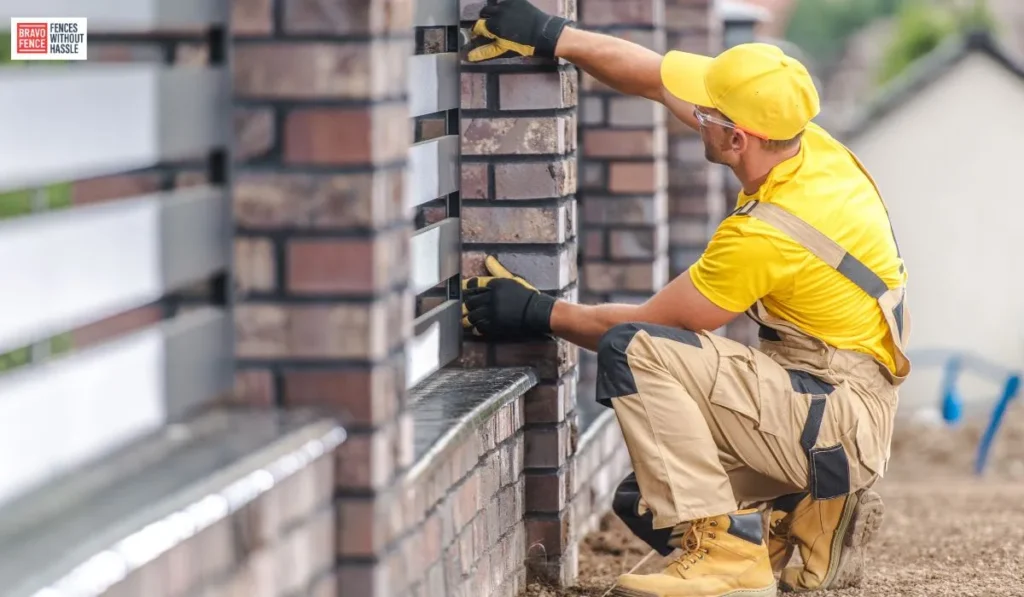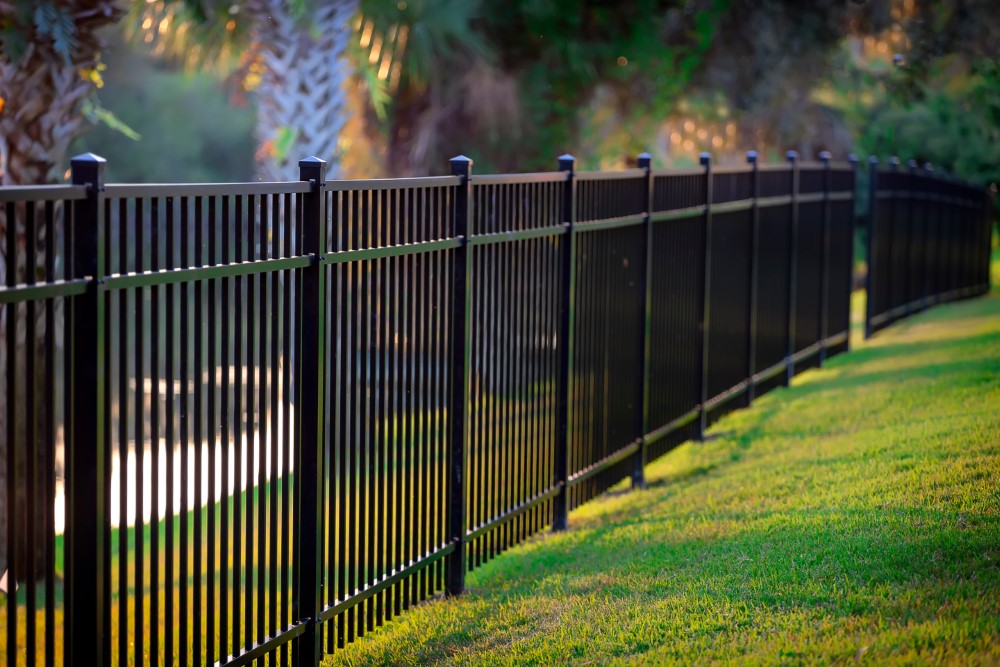
Regular Fence Maintenance Ensures Security, Durability, and Sustainability
Fences are one of the most fundamental structures that offer security, seclusion, and curb appeal to any property, whether you call it a residential home or a commercial property.
Whether keeping the residential home sound or the commercial property attractive, keeping the fence good-looking is essential for its functionality and aesthetic value.
With proper fence maintenance, your fence is going to be stronger and more durable while not caught out in the fallout of the destruction of the environment over the years.
A good strategy of protecting your fence will ensure longevity, enhanced security within your premises, and a reduced impact on the environment.
Step-by-Step Guide to Proper Fence Maintenance
In this step-by-step guide to proper maintenance, you’ll learn the best practices for maintaining your fence, the most durable fencing options, and how to care for the environment.
You’ll see how to prevent rust, you’ll master the installation implementation, and you can take care of your investment through proactive action.
Knowing the Importance of Regular Fence Maintenance

Maintenance should always be the starting point of long-term sustainability for any fence.
Whether your fence is made of wood, vinyl, chain-link, or metal, routine maintenance care will save your fence from costly repairs, structural damage, and unsightly wear and tear.
At its most basic, the ultimate objectives of fence maintenance are to shield against environmental stressors, prevent early ageing, and preserve the integrity and functionality of the fence.
Protecting Property Security
Your fence is the first line of protection for your property.
When in good condition, it effectively keeps people out of a place without consent and keeps valuables from being stolen or vandalism being perpetrated.
A neglected fence can quickly deteriorate, leading to weak and broken posts, sagging gates, and gaps that compromise security at your property.
This article on fence protection strategies spotlights routine inspections and repairs to find weaknesses and strengthen your fence.
If you notice any apparent signs of damage on the fence, like loose boards, leaning posts, and rusty metal sections, repair them right away, for it will prevent further weakening of the structure.
Remember, a strong fence ensures security and creates a safe feeling for your family, employees, and visitors.
Improving Fence Strength
Another fundamental reason to keep your fence in excellent condition is its durability.
Every material used for making fences has specific fights against moisture, UV rays, wind, or pests.
Dealing with them on time will avoid these potential damages and increase the life span of your fence.
For example, wood fences easily succumb to rotting, insect infestation, and warping.
Continuous sealing or staining helps prevent water entry and degradation due to ultraviolet rays from the sun.
An inhibitor to metal fences to prevent rust will reduce corrosion to a minimal level.
This type of rust prevention is most suitable for metal fences installed in wet or rainy climatic conditions.
Sustainability and Environmental Protection
Both residential and commercial users are increasingly focusing on sustainability.
Fences made of eco-friendly or sustainably installed materials lessen your environmental footprint.
Further, proper maintenance will ensure your fence lasts longer instead of needing to be replaced frequently and generating less waste.
There are numerous reasons why routine fence maintenance supports environmental protection.
Wooden fences, for instance, may be painted with non-toxic sealants or stains that do not harm the environment.
For repair work, the reuse and recycling of materials are promoted.
Using environmentally friendly fencing materials such as bamboo and recycled metal can help make your fence eco-friendly.
Long-Term Strategies for Maintaining a Fence
Regular Inspections
A scheduled inspection program can find minor problems before they become big deal problems.
Inspect your fence every few months and after a significant weather event.
Check it out for signs of wear, such as loose or missing boards or panels and sagging or leaning sections.
Other signs of rot or insect damage in wood
Rust or corrosion for any metal components
Splitting, bowing, or other cracking on structural members
Address these issues immediately so they will not become more prominent, more expensive issues in the future.
Check gates, doors, and hinges to ensure they latch and open properly.
Cleaning and Staining or Sealing
Clean wood fences regularly, as dirt, mould, and mildew can deteriorate the material.
Be sure to use a mild detergent and a soft-bristled brush.
Finish cleaning your wood fence with a rinse of water.
Once your wood fence is cleaned, apply stain or sealant to help guard against moisture and UV damage.
Stain your wood regularly, about every 2-3 years, to ensure that it is kept healthy.
The same applies to vinyl fences. You will need only water and vinegar or mild soap to clean it.
Halt the abrasive cleaners that may tend to scratch on the surface.
Ways to Prevent Rusting of Metal Fences
Metal fences, wrought iron, and chain-link types require extra care to keep from getting rusty.
Rust devalues a fence’s aesthetic appearance but also renders it weak structurally.
To prevent rust, you should:
- Apply a rust-inhibiting primer and paint periodically.
- Check for rust spots and remove them with sandpaper or a wire brush.
- Apply a sealant if exposed to much moisture, especially in a damp climate.
- Ensure there is a proper ground wire installed for the fence to prevent galvanic corrosion caused by electrochemical reactions.
Fence Foundation Maintenance
The suitable base can be as important as the fence itself.
Poorly set up or shallowly placed fence posts will become unstable with changing soil shifts and extreme winds.
Ensure concrete covers the ground over at least one-third of the post for a solid base.
If you have a fence that shows signs of leaning or has sinking posts, treat it by adjusting the soil at its base, tightening loose hardware, or replacing harmful posts when necessary.
Durable Options for Fencing
The right choice from the start will save you hours and dollars in the long term on maintenance.
One of the most durable materials used for fences is as follows:
- Vinyl Fences: Vinyl does not rot, moisture, and UV degradation. Most of you find vinyl beautiful because it does not have to be painted or stained. These can last decades with minimal maintenance.
- Aluminum Fences: Aluminum fences are beautiful, just like wrought iron, but without rust. They are light and robust and can be done in many styles. Thus, they are also suitable for residential buildings.
- Composite Fences: Composite fences are a combination of wood fibres and plastic. They come with the appearance of wood but add more benefits, such as being highly durable and resistant to moisture and insects.
- Steel Fences: Steel fences are strong and even promise robust security. When coated with protective finishes like powder coating, they resist rust and weather damage amazingly well.
A durable fence material reduces frequent repairs that would be made otherwise, and your fence remains in good structural condition throughout the years.
How to Choose Fence for Best Performance
Survey Your Land
Take a good survey of your land to find the correct boundary lines and where exactly you should place your fence.
This will eliminate arguments with your neighbours and ensure you follow local building codes.
Use the Right Material
Reflect on the climate where your fence will be erected, the soil type, and the functions you desire for your fence.
For instance, if it is going to be used in a very wet area, wood may not be the best material; metal fences require rust-protection varnish when erected in regions that expect much rain.
Dig Deep Post Holes
The fence post should go deep enough in the ground to give it a sound base.
Posts of most fences must be put in concrete at least one-third of their length in the ground; this should help them offer you much better wind resistance and not shift eventually.
Use Quality Hardware
Cheap hardware will cause gates to sag or posts to become unstable.
Always use suitable quality brackets, screws, and locks that will ensure your fence will work for many years.
Conclusion
The maintenance of fences is one of the issues included under home and property care.
It will ensure your fence is secure, strong, and aesthetically appealing.
Some means of protection for fences include regular inspections, prevention of rust, cleaning, and elimination of minor problems that should be addressed immediately.
Such measures would incredibly prolong the life of your fence.
Moreover, if you include durable fencing choices and installation tips for your project, you can be specific and rest peacefully with a long-lasting warranty and peace of mind.
Above this, maintaining fences provides environmental safety since it minimizes the materials or wastes expected to be disposed of.
Whichever fence, wooden, vinyl, or metal, going the extra mile in schedule maintenance guarantees that your investment will look good and work even for years.
FAQ
How often should I clean my fence?
Most of the materials making a fence will tell you to clean up at least once a year, but that is inaccurate if you live in an area with a significant amount of moisture or pollution; clean up might be necessary more frequently.
What methods are there to avoid rust on your metal fence?
You keep rust at bay with a rust-inhibiting primer and a rust-inhibiting paint coating on your metal fence, and you should regularly inspect your fence for signs of corrosion. In addition, applying a sealant designed for metal fences can protect the wall from moisture.
How do I determine that my wood fence needs to be sealed or stained?
If you realize your wood fence is bleaching, soaking up the water, or growing mildew, it is time to reseal or stain. You can perform a simple water test in which you sprinkle water on the fence and note whether it beads off or soaks up the water test.
How do I repair a sagging gate?
Most sagging gates can be repaired by merely adjusting the hinges, tightening the hardware, or installing a gate brace kit. If it’s a post problem, you may have to strengthen or replace it for a more permanent fix.
How long do vinyl fences last?
If proper care is taken, vinyl fences should be maintained for at least 20–30 years. These fences are sturdy against weather conditions and won’t be easily damaged by rotting and fading.
Tags: Everything You Need to Know About Fence Care, Everything You Need to Know About Fence Maintenance, Everything You Need to Know About Sustainable Fencing, Explore Helpful Resources on Fence Durability, Inspiration and Tips on Eco Friendly Fencing
